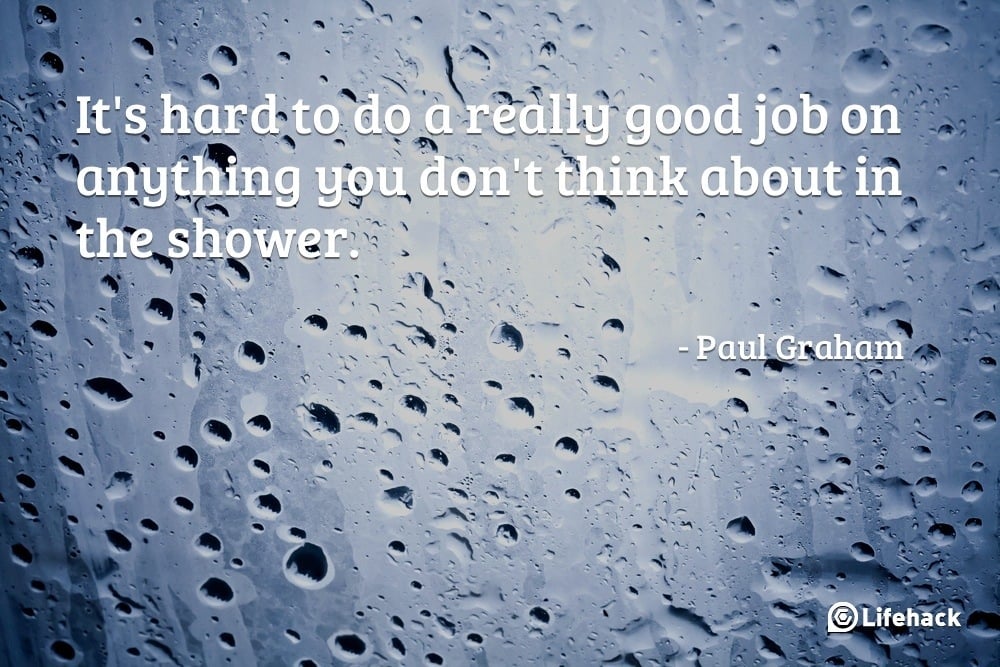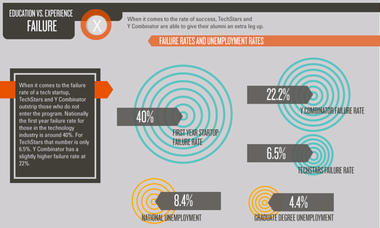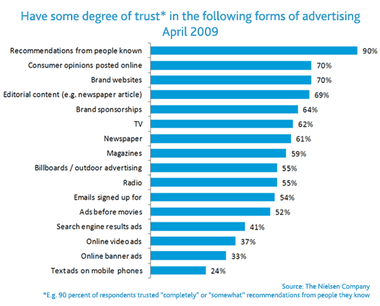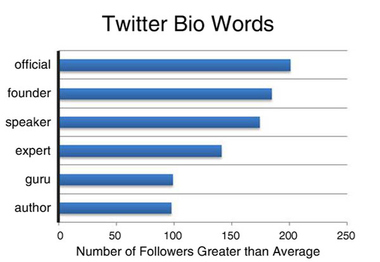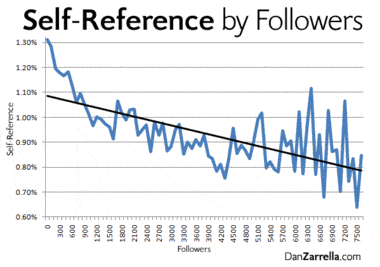In my freshman year of college (2007), my friends and I wanted to start a magazine publishing company aptly named DTO (Defying The Odds) Publishing. We had a great idea for a local periodical that would give out fitness advice and integrate coupons and ad space from local businesses. This was all pre-iPad, so don’t judge me. We were hyped and to this day, I think it would have worked with the correct follow through. We had nothing but free time and the university had even offered to let us use their printing press, there was really nothing standing in our way.. I think one of the media directors had a “thing” for me. It was a slam dunk.
We never even published our first article.
When I think about the epic fall-apart, I cringe and I get the prickles on the back of my neck. The kind of prickles mixed with face-palm and a little bit of shame. We even had a logo designed. It’s somewhere in the deep netherworld of my hard drive sobbing uncontrollably and I can’t bear to look at it.
So what happened to DTO? It crashed and burned brilliantly, of course.
Were we just a bunch of lazy jackasses lacking ambition and business smarts? No, we weren’t. But we did make some major start-up mistakes that we couldn’t take back.
Here are the big mistakes you’re up against and the solutions to turn them around fast.
Start-Up Mistake # 1: You never learn “idea incubation”
Being the naive 19 year olds that we were, we thought one way to start our business would be to take a trip to the local SBDC (Small Business Development Center) to get some solid advice on what steps to implement next.
What a mistake!
The SBDC office in Tampa is pretty convincing. It’s located in a big glass building overlooking the water on the top floor — quite authoritative. It’s filled with little offices that say “Joe Schmoe, Super-smart MBA” on the glass door. So we set up our appointment with one of the consultants to talk about our magazine and he proceeded to pull out books, charts and graphs on the publishing industry that demonstrated precisely what we feared the most: we were going to fail.
Every graph had a downward trend, every expense report was in the red. He all but said “There’s nothing you can do to make this work.” Right then and there, based on someone else’s opinion of my business model, I mentally began packing up shop.
Looking back on the situation, I can’t believe I gave up that easily. I assumed that somebody with “credentials” and my apparent best interests in mind was worth listening to.
Start-up entrepreneurs have tough exteriors, but we’re fragile on the inside. We are scared and when it comes down to it, we’re often subconsciously looking for a reason why our idea won’t work because many of us don’t believe in our heart of hearts that we are worthy of success. In the baby stages of your idea, before it’s fully developed and walking by itself, it’s extremely easy to become discouraged and give up.
Don’t.
This is the period of time when you need to be letting your idea incubate.
The High Leverage solution:
I know you’re excited about your idea…and although I don’t know you, I’m excited for you too. For all I know, you could be the love child of Zuckerberg and Jobs. Kind of gross to think about, but kind of cool.
Either way, I’m sure you have a great idea. Too bad the idea itself worthless.
“What do you mean by worthless, Daniel? I thought you told me I was smart and creative…wahhh!”
Relax. Your idea is worthless because an idea unexecuted remains just that: an idea. Only executed ideas have value in the start-up world. An idea has to be born to actually grow up.
Think of your your mind as a womb and your initial idea as the small collection of cells called a zygote (dork alert) that will eventually multiply and create the fetus. Those idea cells need the right conditions to grow, or else, no fetus. After that, the fetus needs time to develop to turn into the infant that will eventually be your business and once your idea is born, it will continue to grow with the help of resources outside of you. It will start walking, you’ll teach it to ride a bike and it will grow up. Maybe if you’re lucky, it will even take care of you in your old age. That was a gross and convoluted metaphor, but I hope it made sense.
What happens if you deliver a baby before it’s ready to come out? Premature babies are often too weak to survive on their own. There’s a higher mortality rate. I was a “preemie” and I have the tube scars on my chest to prove that being born too early is a hard road. Feel bad for me.
The key to giving birth to a healthy baby (or idea) is incubation.
No matter how excited you are with your idea, your task is to incubate it for as long as you need to in order to make sure that you can deliver it successfully. Let some of the complex ideas and questions bouncing around in your head settle down and simplify. Get some answers for yourself so that when others (friends, family, ‘experts’) inevitably try to poke holes in what you’re doing (and, oh, will they ever) – you have the confidence to either respond to them without completely crumbling or you realize that their objections are completely unwarranted.
Incubation isn’t a new phenomenon. Some of the most successful start-ups have been born from incubation programs that give them the resources and time needed to develop before releasing them out into the dangerous, predatory market of competition and public scrutiny. Y Combinator and Techstars both have incubation programs that nurse fledgling ideas until they are big and strong – and look at the marked difference in failure rate between those programs and first year start-ups without the period of incubation.
Source:xconomy.com
In some cases, start-ups incubated at Techstars were 600% more likely to succeed than other first year businesses. 600 percent. Pretty overwhelming evidence for coddling your fledgling idea.
Now, to be clear, you don’t need to be in one of these programs to greatly increase your chances of success. Incubate your ideas, strengthen them in your head, flesh them out in your mind, refine them and find their true voice. Find your market, research the hell out of your competition and learn what people really want rather than assuming that you already know. Become painfully aware of the effort your endeavor will entail.
Talking to others about our ideas too soon will expose them before they are ready. Play it close to the chest, give yourself time to refine, then start bringing them into fruition.
Incubate, then act.
Start-Up Mistake #2: You keep #$%&ing up your social media marketing
Some would be entrepreneurs want to start a new website any time they think of a good idea. They get all juiced about it, then start flinging their crap all over social media like a chimp on heat.
“Follow me, ‘LIKE’ me, look what I did, check this out!”
I could kill myself every time I get a notification like this. I’m going to kill you if I see you sending notifications out asking me to check out your new site. I’m unfriending all of you!
Here’s the thing, it’s important to have a social media presence. Sure, let people know you’re alive…let them know what you’re working on. But let’s face it, there are two very sad realities about your social media network:
Nobody is listening to you and nobody cares.
Even your mom doesn’t really care. She’s just humoring you.
“Oh there Daniel goes, being mean again.”
I’m not being mean, I’m just being honest. Social media is great as a way to talk to people, but it’s also a huge ego machine. We’ve designed social media as a collective mirror so that we can determine how people feel about us.
We want to leverage social media to expose our ideas to new markets and connect with people we wouldn’t typically have the opportunity to connect with. Problem is, it’s usually the same 10% of people responding to us every time we post. If you have 1,000 friends on Facebook, you probably have 25 that actually like you enough to check up on you, 15 that you actually talk to and 5-10 who will actually take the time to check out your business.
And all of this is your fault.
Sad, but true. Luckily, there’s a way to fix it.
The High Leverage Solution
So am I saying social media is useless? Isn’t that completely counter-intuitive to the current trends in marketing right now that say strong social presence is actually a key component to successful start-ups?
Well….yes and no.
Social media is useless for your business if it’s just your mom, your friends from college and your dog looking at your updates.nYes, I know people who make profiles for their dogs. Very, very lonely people.
Essentially, the friends you already have aren’t going to give you the feedback you need to grow. They’re going to like almost everything you put out. You need unbiased perspectives. Social media is only useful when you can leverage it one and two levels outside of your immediate social group and start building relationships with people that you don’t know directly, but who may still know of you through a mutual friend (or friend-of-a-friend).
This one-off relationship creates social proof.
What exactly is social proof? My friend, you ask excellent questions. You’ve been controlled and coerced by social proof most of your life, even if you weren’t aware of it.
“No, it’s not that fast. You’ll be fine.”
“Don’t worry about it, we’re all skipping. They told us we could.”
“No, you can’t get pregnant the first time. I learned it in health class.”
“Smoke this, you’ll like it. My friends and I smoke it all the time.”
Any of these sound familiar? The last two definitely NEVER happened to me.
Social proof is a form of peer pressure that we leverage on each other with the basic premise that if one person or a group of people that you know have done something, you should/can/might do that thing too. Of course, when we grow up we become immune to this type of dollar store trick psychology, right?
Hell no!
Don’t believe me? Just ask The Nielsen Company. They’ve been tracking what people do, buy and watch in a really creepy big brother way for over 88 years – and they’ve gotten freaky good at it. They found that 90% of people “completely” or “somewhat” trusted recommendations from people that they know. Talk about pre-qualification and peer pressure.
Source: The Nielsen Company
Social proof is alive and well. Social media is the best way to leverage it, but like I said, you have to be able to break out of your immediate circle and stop begging for praise from your friends who’d tell you that your retarded stick figure sketches are masterpieces.
How do you break out of your immediate sphere of influence and affect people who can actually help build your business?
Positioning. You need expert positioning.
People want to follow experts, gurus and authoritative figures. They don’t want your opinions, they want your educated insights as a thought leader. So the first step is to start referring to yourself as a leader. Dan Zarella did an interesting study on the relationship between authoritative key words in Twitter bios and follower number.
Source: Dan Zarella
Note all the words indicate expertise. Titles like “official”, “founder”, “speaker”, “expert”, “guru” and “author” all tell people:
“Hi, listen to me. I’m smarter than you.”
And you know us humans. We love to be led by smart people. So start leading. Whatever your start-up is, one of these titles probably applies to you. Use it.
What Would MLK Jr. Do (on social media)…?
In the same context as assuming a leadership-worthy title, you also must begin speaking like a leader. As it turns out, true leaders don’t spend 140 characters yammering about themselves. Leaders create valuable content for people to learn from and give direction to their field.
Think about what the term “thought leader” really means. A thought leader says:
“you already know me and what I’m about. I’m a _____ (insert above authoritative Twitter bio words). Here’s what you should be doing if you want to achieve similar results.”
If I ever need to tweak the context or voice of my social media interaction, I just think of Martin Luther King Jr.
I ask WWMLKD? Imagine two hypothetical tweets from the 1963 march on Washington:
@MLKjr: Dammit, my feet are killing me. It’s so hot out here, I got those #PitStains going on. Hope @CorettaScott got something good for me to eat when I get home.
or….
@MLKjr: Injustice anywhere is a threat to justice everywhere. Here’s an article for my followers to consider [insert link].
Now, which tweet communicates more power and authority? Which is more focused on creating value? Which one do you care about more? Which MLK jr. are you more likely to follow.
Notice that tweet number 1 might have actually been what he was feeling at the time, but it comes off very “me-centered” and selfish. Tweet 2, on the other hand, is a carefully crafted message that communicates the ideas of a thought leader. Incidentally, it’s actually a real quote from a letter that MLK wrote as well. Hmm, maybe he was on to something. We all need to adhere to the etiquette of tweet 2.
Engaging social media in the context of a thought leader does two things:
- First, it stops you from looking like a flaming Will-Ferrell-in-Anchorman douchebag.
- Second, it makes you relatable and likeable by showing that you genuinely want to contribute to society for a reason outside of your gigantic ego stroking addiction.
It’s a true win-win.
Zarella found another gem that proves follower count CLEARLY drops as self-referential tweets increase. Interesting. This scientifically proves that people don’t care about what you ate for breakfast. They care about how your information can help them grow and move their lives forward. Be a leader in tone and context by helping them to do that.
Next time you get a case of the “me, me me’s”, think about this:
Source: Dan Zarella
Start-Up Mistake #3: you’re still trying to “network” like a jerk
Here’s the thing about other people: we need them. You can’t build a business on your own and the success of your business largely depends on the quality of people it attracts. So you need to be diligent in attracting the right people to build your network.
Before we dive into this one, let’s talk a little about the term “networking” — what it IS and what it IS NOT.
- Networking is NOT friending or following people on social media.
- Networking is NOT meeting someone and immediately trying to leverage them in some way.
- Networking is not joining some business club with a bunch of wannabe’s in a circle jerk trying to generate leads together after a $699 initiation fee.
- Networking…unfortunately, is not always fast.
We all know that we have to network in order to build our businesses. However, if I told you to go out and do it…you probably wouldn’t be able to. It’s not a linear process.
And that’s OK.
The Mistake
The truth is, networking simply for the sake of networking is just creepy and unnatural because of the implied message if gives off to other people:
“Hey, I don’t know you from jack…but I was hoping that you’d be comfortable enough to give me your advice and hook me up with all your closest personal and business connections. Also, my name is Daniel.”
Would that motivate you to whip out your little black book and give me the hook up?
A big, fat HELL NO.
Yet that’s the implicit message sent when we network simply to enhance our business. It often comes off as self-serving.
Stop it.
Stop forcing unnatural interaction with others in your industry with an underhanded ulterior motive. It’s not cute (and they know you’re doing it).
The High Leverage Solution
So what is the correct way to network and enhance your positioning without becoming a leech?
The temptation is to think of yourself like a central server in the middle of a bunch of nodes — all of them receiving your information, and with the right combination of signals from you, doing what you want them to do.
Try this instead:
Rather than thinking about yourself at the center of the nodes, think of yourself as a node among fellow nodes, with no central hub — just an endless connection of (mostly) friendly compatriots. You’re all working to pass information along, and it goes both ways. You’re all connected on an equal plane, without trying to gain advantage or hoard resources from one another.
Your goal here is to make friends, not just connections.
To really get yourself in this mindset, you have to start asking different questions. Rather than “how can this person help me?”, it’s much more useful in the long run to actively seek out people to help and ask “how can I serve this person benevolently?”
Besides the fact that JFK would be quite proud of you, the the cool part about this paradigm is that your initial act of service doesn’t have to be huge to justify a huge return later.
The effects of obligation, reciprocity and compliance have all been well documented. As a part maintaining of social norms, people will go to extreme lengths to return a favor (even one that was not asked for) — regardless of whether they actually like the person or not — as demonstrated in an experiment by Cornell psychologist Dennis Regan in 1971.
Regan had subjects believe they were in an “art appreciation” experiment with a partner, who was really Regan’s assistant. In the experiment the assistant would disappear for a two-minute break and bring back a soft drink for the subject. After the art experiment was through, the assistant asked the subject to buy raffle tickets from him. In the control group the assistant behaved in exactly the same manner, but did not buy the subject a drink. The subjects who had received the favor, a soft drink, bought more raffle tickets than those in the control group despite the fact that they hadn’t asked for the drink to begin with. Regan also had the subjects fill out surveys after they finished the experiment and found that whether they personally liked the assistant or not had no effect on how many tickets they bought. One problem of reciprocity, however, focuses on the unequal profit obtained from the concept of reciprocal concessions. The emotional burden to repay bothers some more than others, causing some to overcompensate with more than what was given originally. In the Regan study, subjects paid more money for the tickets than the cost of the (un-requested) soft drink.
According to the study, most participants actually felt obligated to give back more than they were given simply because they were given a gift. Interesting. Now, to be clear, you want to use these psychological tendencies for good, not evil. Approach people bearing genuine goodwill, offering to help them achieve something. More than likely it will be returned to you. So really dig deep on what you have to offer, then give it everything you have.
Soon you’ll have a bunch of genuine friends rather than business acquaintances. With a bunch of friends helping you to pay it forward and working to see you succeed, there will be no need to “network” ever again.

